The shift to hybrid working has fundamentally changed how we lead teams. With some colleagues in the office, others working from home, and everyone juggling different schedules, building trust has become both more challenging and more crucial than ever before.
Here's the reality: traditional command-and-control leadership simply doesn't work when you can't see your team every day. What does work? Authentic leadership: a approach that prioritises genuine connection, transparency, and empowerment over authority and micromanagement.
What Makes a Leader Authentic?
Authentic leadership isn't about being everyone's mate or sharing every personal detail. It's about leading with integrity, consistency, and genuine care for your team's wellbeing and success.
At its core, authentic leadership means showing up as your real self: not putting on a performance or hiding behind corporate speak. It's about being comfortable with who you are whilst making ethical decisions that benefit the entire team.
As leadership expert Bill George puts it: "Authentic leaders are genuine, self-aware, and focused on serving others rather than themselves."

The research backs this up too. Teams led by authentic leaders report significantly higher job satisfaction, stronger sense of belonging, and deeper commitment to their organisation's mission. In hybrid environments, where physical distance can create emotional distance, this authentic connection becomes the bridge that keeps teams united.
Why Trust Matters More in Hybrid Teams
Trust has always been important, but in hybrid teams, it's absolutely essential. When you can't pop over to someone's desk for a quick chat or read their body language in meetings, trust becomes the foundation everything else is built on.
Consider this: only 26% of leaders actively foster psychological safety in their teams. That's a massive opportunity for managers who want to stand out and drive real results.
Without trust, hybrid teams fall into common traps:
- Endless status update meetings because nobody trusts work is getting done
- Over-communication that drowns out important messages
- Remote workers feeling excluded from key decisions
- Office-based team members assuming remote colleagues aren't pulling their weight
The Five Pillars of Authentic Leadership in Hybrid Teams
1. Radical Transparency
This doesn't mean sharing everything: it means being honest about what you can and can't share, and why. When plans change, explain the reasoning. When you make mistakes, own them. When you don't know something, admit it.
In hybrid environments, information asymmetry can quickly erode trust. If office-based team members get different information than remote workers, or if decisions are made in casual conversations that some people aren't part of, trust disappears fast.
2. Emotional Intelligence in Action
Authentic leaders recognise that managing a hybrid team requires extra emotional intelligence. They understand that someone's silence in a video call might mean they're struggling with technology, not that they're disengaged. They notice when remote workers seem isolated and proactively reach out.
This means asking better questions: "How are you finding the balance between home and office days?" instead of "Are you staying productive at home?"

3. Empowerment Over Control
The temptation with hybrid teams is to micromanage: to track every activity and monitor every output. Authentic leaders resist this urge. Instead, they focus on outcomes and trust their team to deliver.
They ask "How can I support you?" rather than "Why didn't this get done on time?" This shift from control to empowerment creates what researchers call positive psychological capital: confidence, optimism, and resilience in your team.
4. Consistent Communication
Consistency isn't just about regular check-ins (though they matter). It's about being the same leader whether you're having a good day or a bad day, whether you're speaking to someone in the office or on a video call, whether the project is going well or facing challenges.
Your team needs to know what to expect from you. If you're friendly and approachable on Monday but short and dismissive on Friday, trust erodes quickly.
5. Vulnerable Leadership
This might feel counterintuitive, but showing appropriate vulnerability actually strengthens your leadership. When you admit you don't have all the answers or that you're learning too, it gives your team permission to be human as well.
Vulnerable leaders create psychologically safe environments where people feel comfortable sharing problems early, asking for help, and taking calculated risks.
Practical Strategies for Building Trust
Start Every Meeting with Connection
Instead of diving straight into agenda items, spend the first few minutes on genuine human connection. This might be sharing a quick personal update, asking about someone's weekend, or simply checking how everyone's feeling.
For hybrid teams, this is especially important for remote participants who might feel disconnected from office-based conversations.
Choose Your Communication Channels Thoughtfully
Email for updates, video calls for complex discussions, instant messaging for quick questions. But here's the key: use video for anything that could be misinterpreted or that involves emotional nuance.
When you need to give constructive feedback or discuss sensitive topics, seeing facial expressions and hearing tone of voice makes all the difference.

Create Equal Access to Opportunities
One of the fastest ways to lose trust in a hybrid team is if remote workers feel like second-class citizens. Make sure promotions, interesting projects, and development opportunities are distributed fairly regardless of location.
If important decisions happen in the office, find ways to include remote team members in those conversations.
Implement Learning-Oriented Mistake Handling
When something goes wrong, respond with curiosity, not punishment. Ask "What can we learn from this?" instead of "Who's responsible for this mess?"
This approach not only prevents blame culture but also encourages people to flag problems early rather than hoping they'll resolve themselves.
The Measurable Impact
The benefits of authentic leadership in hybrid teams aren't just feel-good concepts: they're measurable business outcomes:
- Retention: Teams with authentic leaders see significantly lower turnover rates
- Engagement: Employee engagement scores increase by an average of 15-20% under authentic leadership
- Productivity: When trust levels are high, teams spend less time on defensive communication and more time on actual work
- Innovation: Psychologically safe teams are more likely to share creative ideas and take calculated risks
Your Four-Week Action Plan
Week 1: Listen and Assess
- Have one-on-one conversations with each team member about their hybrid working experience
- Ask specifically about trust levels and communication preferences
- Identify the biggest pain points in your current approach
Week 2: Start Small
- Implement daily or weekly check-ins that focus on connection, not just status updates
- Share one piece of information you wouldn't normally share (within appropriate bounds)
- Begin acknowledging specific contributions more frequently
Week 3: Build Systems
- Create regular feedback loops: both giving and receiving
- Establish consistent communication rhythms that work for both office and remote workers
- Start tracking trust-related metrics (engagement, retention, collaboration frequency)
Week 4: Expand and Embed
- Train other leaders in your organisation on trust-building behaviours
- Celebrate early wins and share success stories
- Plan longer-term initiatives to maintain and strengthen trust
The Road Ahead
Building trust in hybrid teams isn't a destination: it's an ongoing journey. Authentic leadership provides the compass, but you'll need to keep navigating as circumstances change.
The leaders who thrive in our hybrid future won't be those who try to control everything from a distance. They'll be the ones who build genuine connections, empower their teams, and create environments where people can do their best work regardless of where they're sitting.
As Simon Sinek reminds us: "Leadership is not about being in charge. Leadership is about taking care of those in your charge."
In hybrid teams, taking care of people starts with building trust. And building trust starts with being authentically yourself.
